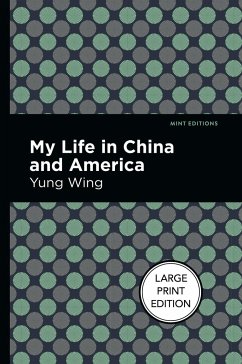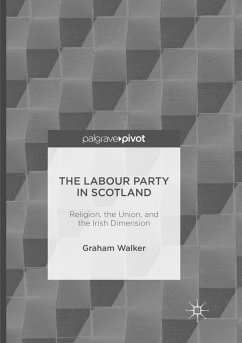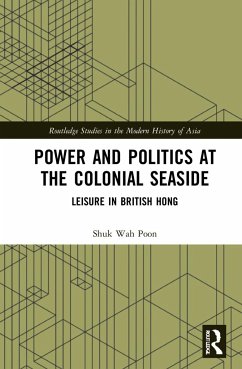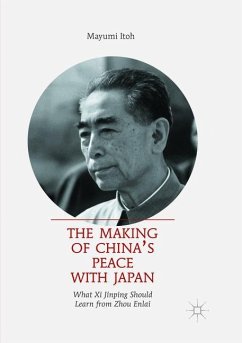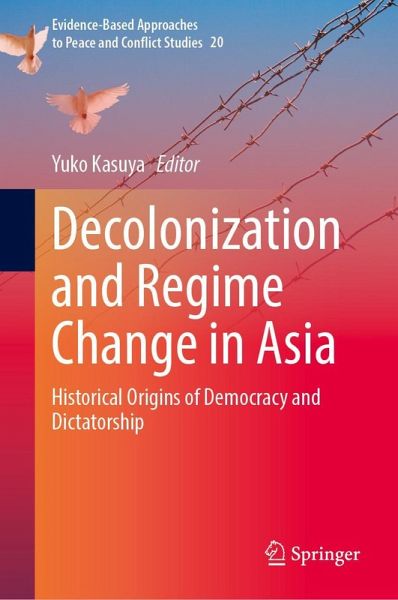
Decolonization and Regime Change in Asia
Historical Origins of Democracy and Dictatorship
Herausgegeben: Kasuya, Yuko
Versandkostenfrei!
Erscheint vorauss. 13. Januar 2026
159,99 €
inkl. MwSt.

PAYBACK Punkte
80 °P sammeln!
This book analyzes and compares the history of decolonization throughout Asian countries.Is it really possible to paint a unified picture of Asia's diverse modern and contemporary history, from kingdoms to republics, from authoritarian regimes to liberal democracies? This book vividly answers this question by focusing on decolonization, especially in the 1940s and 1950s, before and after World War II, because the power relations that were established during this period are the origins that have an important influence on the current political system.This book focuses on the question of why some...
This book analyzes and compares the history of decolonization throughout Asian countries.
Is it really possible to paint a unified picture of Asia's diverse modern and contemporary history, from kingdoms to republics, from authoritarian regimes to liberal democracies? This book vividly answers this question by focusing on decolonization, especially in the 1940s and 1950s, before and after World War II, because the power relations that were established during this period are the origins that have an important influence on the current political system.
This book focuses on the question of why some Asian countries became democracies while others became autocracies of various kinds after decolonization. The key is institutions and movements at the end of the colonial period. The book focuses on two important factors influencing the political changes before and after independence: the institutions of self-government and the royal family, and the movements, radical with armed struggle and moderate without armed struggle. Based on the combination of the existence or non-existence of these institutions and the strength or weakness of the movements, four types of leadership groups are derived to elucidate the post-independence regime typology. This approach will allow us to bring into a unified perspective for the first time the diverse history of modern and contemporary Asia.
Is it really possible to paint a unified picture of Asia's diverse modern and contemporary history, from kingdoms to republics, from authoritarian regimes to liberal democracies? This book vividly answers this question by focusing on decolonization, especially in the 1940s and 1950s, before and after World War II, because the power relations that were established during this period are the origins that have an important influence on the current political system.
This book focuses on the question of why some Asian countries became democracies while others became autocracies of various kinds after decolonization. The key is institutions and movements at the end of the colonial period. The book focuses on two important factors influencing the political changes before and after independence: the institutions of self-government and the royal family, and the movements, radical with armed struggle and moderate without armed struggle. Based on the combination of the existence or non-existence of these institutions and the strength or weakness of the movements, four types of leadership groups are derived to elucidate the post-independence regime typology. This approach will allow us to bring into a unified perspective for the first time the diverse history of modern and contemporary Asia.





